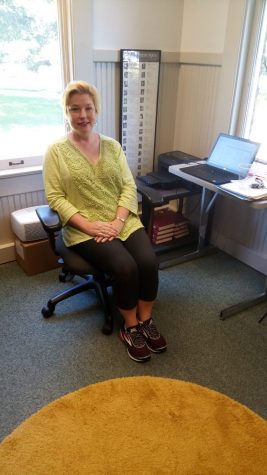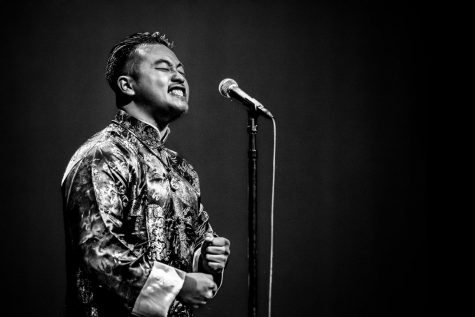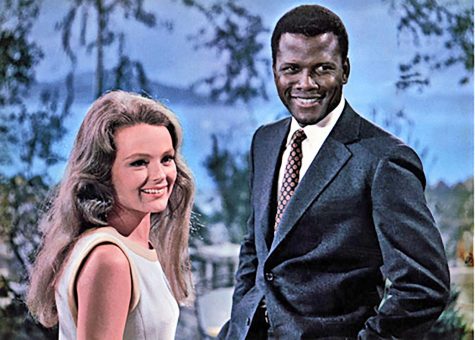Former professor’s memoir chronicles family’s tense past
A former St. Edward’s University professor returned to campus last week to read from “Gated Grief,” her candid memoir that chronicles her childhood with a WWII veteran father and explores the generational effects of post traumatic stress disorder that affects military families.
At the reading on April 12, Leila Levinson described the creation of her book, including memories from her childhood and the help she received from students. She detailed the pain she felt growing up with an emotionally distant, overworked father and her alcoholic mother who was sent away when Levinson was 5 years old.
Levinson began the reading by showing a slideshow including old family pictures of her Jewish-Russian grandparents, her father in his military doctor’s uniform and a photo of her 7-year-old self. During the slide show, she began to talk about the life and death of her father.
Levinson stood under a projected photo of her father — the physical similarities between father and daughter were unmistakable. She described her father as an intelligent, stoic workaholic who demanded excellence from his children. He never spoke of his time as a military doctor and never hinted that he had encountered any concentration camps.
“I never thought twice about it because he never talked about it,” Levinson said. “It wasn’t a part of our landscape. We did not know about the Holocaust growing up.”
When her father died in 1998, Levinson and her older brother were sorting through her father’s papers when they found a trunk filled with photos. Each photo had meticulous notes written on its back describing when and where the photo was taken. As they went through the photos, Levinson and her brother came across gruesome pictures that were taken at Nazi concentration camps.
“I tried to keep the photos at arm’s length,” Levinson said. “I was sure that my hand was going to burn up.”
She presented two of the photos with a disclaimer on their graphic nature. The two separate photos showed hundreds of emaciated bodies piled together on the floor. Her father is standing in the background of the photos looking at the bodies.
“I went into shock,” Levinson said. “I couldn’t even accept [that] my father had been at a concentration camp.”
She told the audience that, as a medic, her father was expected to stay and treat the sick people who had survived the concentration camp. Levinson said she had no idea her father was a GI liberator of a concentration camp.
Levinson later learned from her aunt that her father had suffered a mental breakdown because of the atrocities he had seen. At the time of his breakdown, post traumatic stress disorder was not medically recognized, so many GI liberators were returning to the States silently suffering and forced to bury their pain. Levinson believes that, because veterans were forced to swallow their pain, it manifested in other destructive ways.
In one photo, her father is sitting down on the ground barefoot. Levinson revealed that the photo was taken when her father was sent away to deal with his mental breakdown. Levinson remembers feeling unnerved when she first learned the meaning of the photo.
“My father was extremely proper, so the fact that he was sitting there half-dressed is very disturbing to me,” Levinson said.
Levinson taught Rhetoric and Composition and Literature and the Holocaust at St. Edward’s from 2002-2008. She revealed that her students inspired her to write “Gated Grief” after a class discussion about liberated Jews and their families and the generational effect of the trauma suffered by survivors of the concentration camps.
“I was sick to my stomach because they were talking about me,” Levinson said. “My students gave me my assignment.”
Levinson said the psychological novel “Chorus of Stones,” written by Susan Griffin and recommended to her by colleague Professor Alan Altimont, further inspired her to question the effects trauma had on not only her family, but multiple families of WWII veterans. She realized there had been no books written about the liberators of Nazi concentration camps.
“I felt like [I was in] one of those movies where a light shines on the path you should take,” Levinson said. “War is a part of families in a way that society does not understand.”





